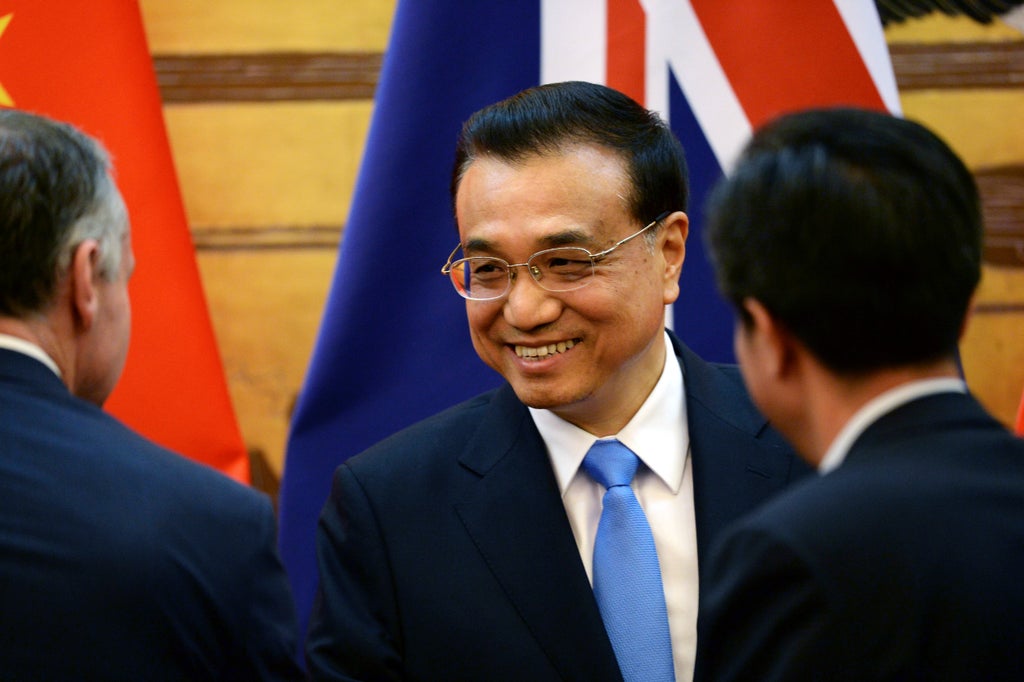
Chinese Premier Li Keqiang wrote to congratulate Australian Prime Minister Anthony Albanese on his election victory, which some Australian media reported on Tuesday was a thawing of bilateral relations that Beijing put into deep freeze more than two years ago.
Chinese ministers had refused to return phone calls of their Australian counterparts under former Prime Minister Scott Morrison’s conservative administration.
Albanese and Foreign Minister Penny Wong were sworn in Monday, then immediately flew to Tokyo for a summit with U.S., Japanese and Indian leaders after Australia’s center-left Labor Party narrowly won an election Saturday.
Li told Albanese: “The sound and stable development of the Sino-Australian relationship conforms to the fundamental interests and common aspirations of the two peoples and is also conducive to peace, stability, development and prosperity in the Asia-Pacific region,” China Daily reported.
“China stands ready to work with Australia to learn from the past, look to the future and push forward the sound and stable development of a bilateral comprehensive strategic partnership by adhering to the principles of mutual respect and win-win results,” Li added.
Abanese confirmed that he had received a “letter of congratulation” from Li and other world leaders.
“I welcome that,” Albanese said in Tokyo. “We will respond appropriately in time.” Albanese has said he expected bilateral relations to remain difficult despite Australia’s government change.
Albanese has promised greater Australian engagement with South Pacific island neighbors to counter growing Chinese influence in the region.
Labor described the recently announced security pact between China and the Solomon Islands as Australia’s worst foreign policy failure in the Pacific since World War II. Morrison argued that China wanted Labor to win because a Labor administration would be less likely to stand up to Beijing’s economic coercion.
Albanese told his Quad partners on Tuesday that while Australia’s government had changed, the nation’s commitment to their security alliance had not.
“The new Australian government’s priorities align with the Quad agenda — taking action on climate change and building a stronger and more resilient Indo-Pacific region, through better economic security, better cybersecurity, better energy security and better environmental and health security,” Albanese said.
Asked whether Sino-Australian relations were thawing from their “deep freeze,” Treasurer Jim Chalmers told Australian Broadcasting Corp. on Tuesday: “We want to work with countries in our region to make sure it is stable and prosperous.”
Bilateral relations peaked in 2014 when Chinese President Xi Jinping visited Parliament House a year after conservative Prime Minister Tony Abbott’s administration was first elected.
But relations went into freefall under conservative Prime Minister Malcolm Turnbull, who angered China by outlawing covert foreign interference in domestic politics, which continued under conservative Prime Minister Scott Morrison.
Although the two countries are free trade partners, China has created a series of official and unofficial trade barriers to a range of Australian exports worth billions of dollars.
After conservative lawmakers replaced Turnbull with Morrison as prime minister in 2018, Premier Li had credited Morrison’s “positive attitude” with helping to restore relations that Turnbull had put in the diplomatic freezer.
John Blaxland, Australian National University’s Professor of International Security and Intelligence Studies, described Li’s message to Albanese as a “positive step.”
“It’s now up to Penny Wong and Anthony Albanese on their return to Australia to capitalize on that and explore opportunities for opening up the freezer door,” Blaxland said.
Because the bilateral relationship had deteriorated since Labor was last in office in 2013, China could be expected to give the new administration the benefit of the doubt.
“This is a key inflection point. We know that substantively, policy differences are hard to discern, but in this kind of domain, words matter and … a shift in tone is … really consequential,” Blaxland said.







